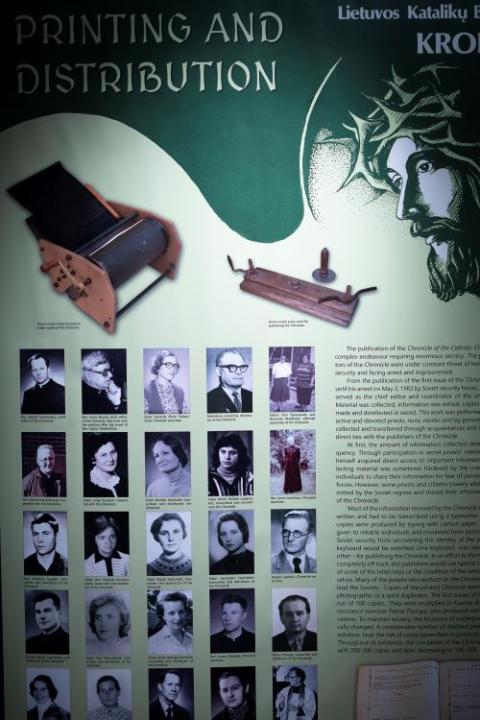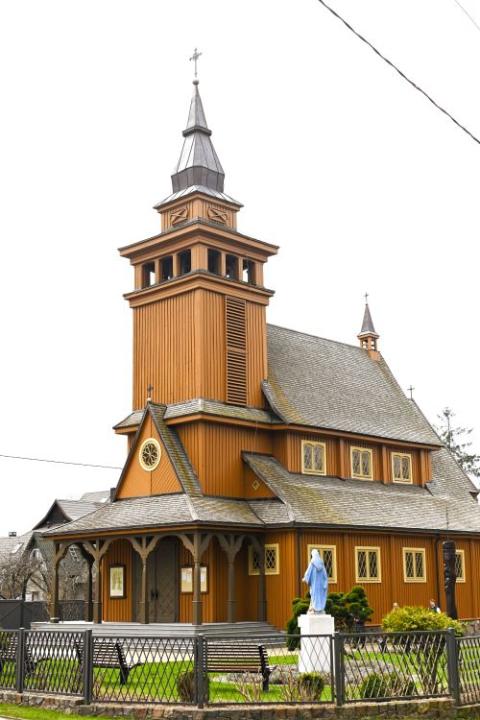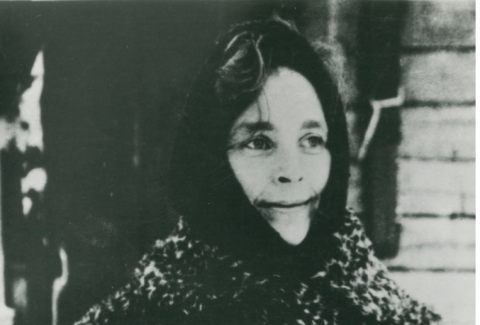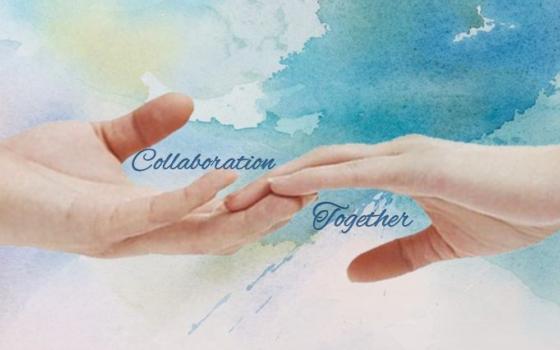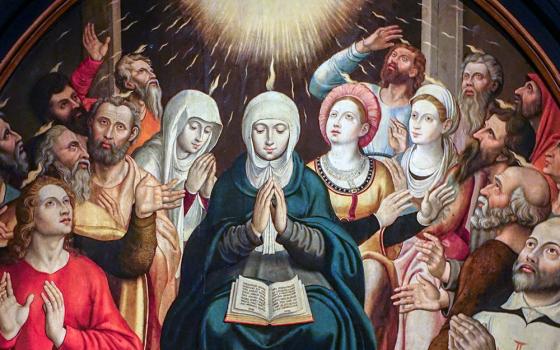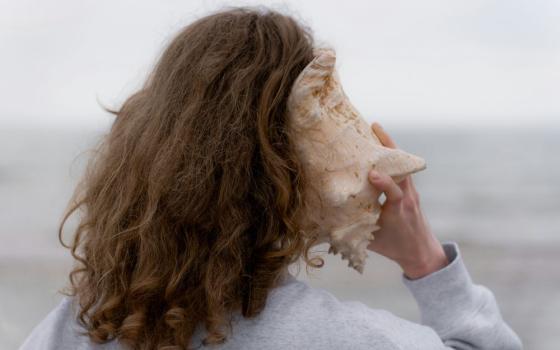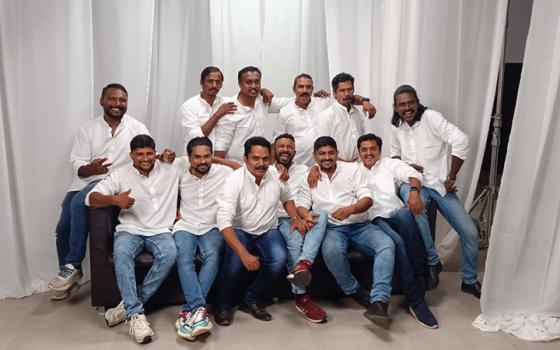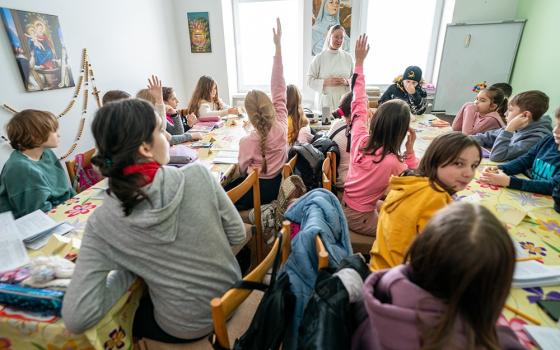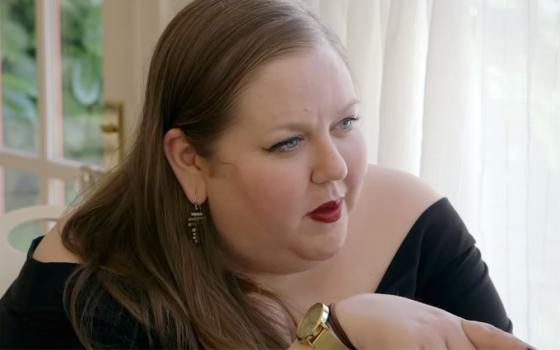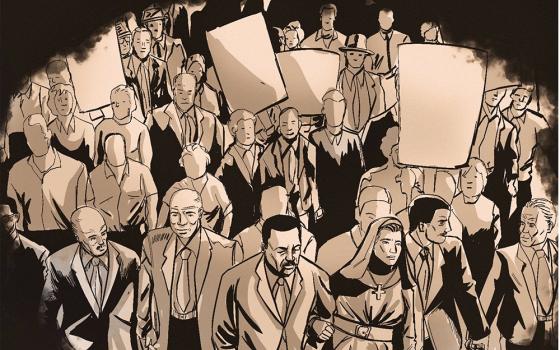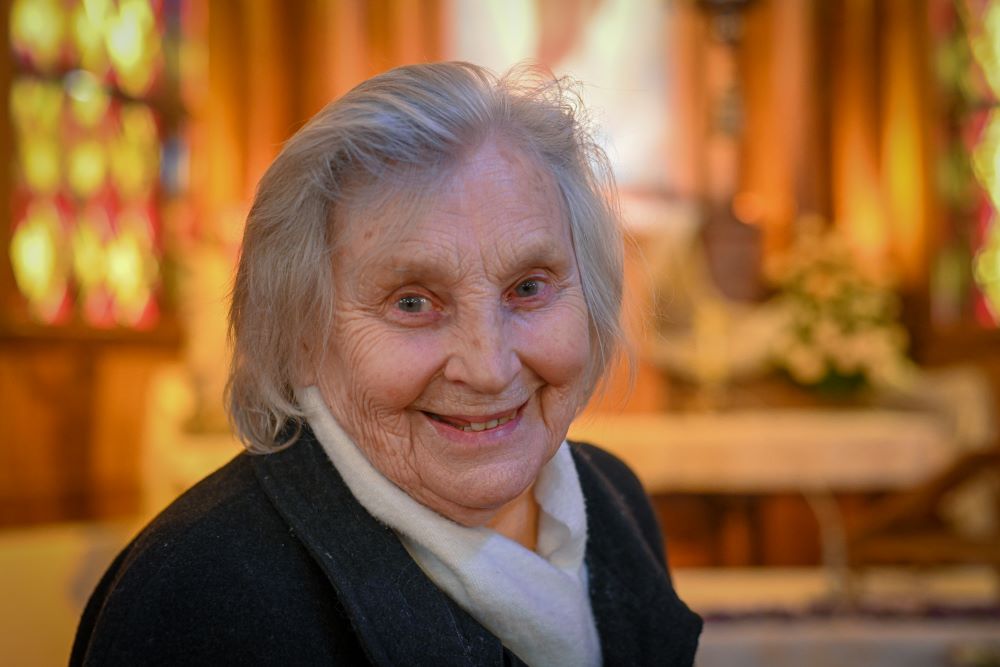
Sr. Nijole Sadunaite, photographed in April 2023, spent three years in a Volga region gulag and three years in Siberian exile after the KGB arrested her in 1974 for working on the underground publication Chronicle of the Catholic Church in Lithuania. Sadunaite died March 31 at age 85. (Artyom Keller)
Editor's note: This interview was conducted in April 2023 at Congregation of the Maids of the Most Holy Virgin Mary convent, a year before Sr. Nijole Sadunaite's death at age 85 on March 31, 2024.
I asked Nijole Sadunaite, an 84-year old Catholic nun who was imprisoned and tortured by the brutal Soviet KGB for her faith: "Do you love the KGB?"
She answered: "I love you!"
It's the kind of response I came to expect during an April 2023 conversation with this twinkly woman of unshakable faith and boundless love. We spoke at her home in a convent adjacent the Christ the King and St. Teresa Church Parish on the eastern outskirts of the Lithuanian capital of Vilnius. There Sadunaite recounted her time in a Soviet prison camp with a triumphant smile and a wave of her hands — as though dismissing years of persecution as nothing too out of the ordinary.
"The guards were scared of me because they thought I was a witch," said Sadunaite, with a grin. While she was incarcerated, in the central Russian region of Mordovia, God frequently shared with her intimate details of the lives of her captors, which so unnerved them that they labeled her a "witch," Sadaunite told me.
At the same time, God revealed to her his love for those repressing her — the prison guards, her KGB interrogators and the atheist Soviet bureaucracy, whose hearts God sought to win. And so did Sadaunite, who prayed earnestly for her captors.
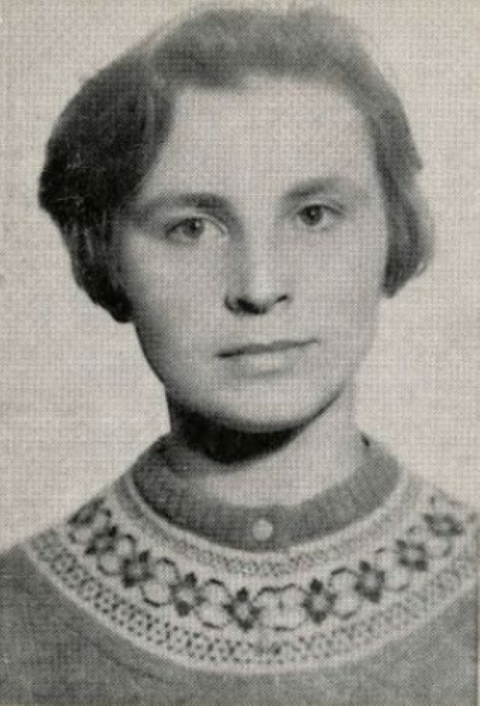
Nijole Sadunaite in an undated photo (Courtesy of Baylor University/Keston Center/Keston Digital Archive)
Later, as an early leader in Catholic Lithuania's drive for independence from the officially atheist Soviet Union, she called on pro-independence crowds to join her in praying for their KGB oppressors. For her steadfast commitment to defending human rights and working to restore democracy, Lithuania honored her in 2017 with its prestigious Freedom Prize.
Sadunaite's response to the news of the award was characteristically humble. "I am 100 percent sure that dear God could not find a less educated and a weaker person in Lithuania," she told a local news service at the time. "Therefore, he gave me strength and assigned me the task."
In the early 1900s, Lithuanians lived under the rule of the Russian Empire, but the country began several decades as an independent state in 1918. The Catholic Church, established in Lithuania for centuries, was a major national institution in that independent state when Sadunaite was born in 1938 — on July 22, now a Catholic feast day honoring Mary Magdalene, she notes. Sadunaite's father worked in a trade school for farmers. Her mother was an 18-year-old student when they married. The path of World War II ran through their homeland, which was occupied first by Nazi Germany, then by the Soviet Union. By war's end, the Soviets had annexed Lithuania and its Baltic neighbors Latvia and Estonia, making them republics under Soviet rule.
The Soviets confiscated private land and deported thousands of Lithuanians to Siberia. Sadunaite grew up in poverty in the countryside, where families banded together to care for one another; she and her parents cared for nine children in their extended family.
Early targets of the Soviet regime were those in church leadership and clergy because their moral fortitude and the deep conviction of their faith was seen as an existential threat to Soviet atheist policy. Convents and churches were closed, and religious education was banned. Many nuns left for Poland or other countries, but some were deported to Siberian labor camps and charged as prostitutes. Shuttered churches were demolished or converted to other uses, like warehouses.
"I pray for Putin, because he is also my brother."
—Sr. Nijole Sadunaite
Even as repression grew against the church, Sadunaite's family continued their religious practices at home, praying mornings, evenings and before meals. Her parents had many Christian books, and from them — as well as from books borrowed from priests who were friends of the family — Sadunaite "picked up a sincere faith and personal relationship with Jesus."
Though many priests had been deported or fled Lithuania, some continued to conduct Sunday services underground, which Sadunaite attended. She even sang in a church choir. For the congregation, the priests who remained as church leaders became true examples of faith, often enduring beatings and torture for their beliefs. "The blood of those that suffered was the seed that grew great faith for those coming after them," Sadunaite said.
Sadunaite increasingly felt called to stand with the poor and downtrodden, to be a witness to the immense love of God. At age 18, she found the path to that calling, when a friend asked her to be a witness as she received the sacrament of confirmation. After a newly ordained bishop prayed for those being confirmed to receive the gifts of the Holy Spirit, Sadunaite asked her friend Brunita: "Can you share with me some of the gifts of the Holy Spirit?"
To which her friend replied, "Of course, Nijole, take as many as you can."
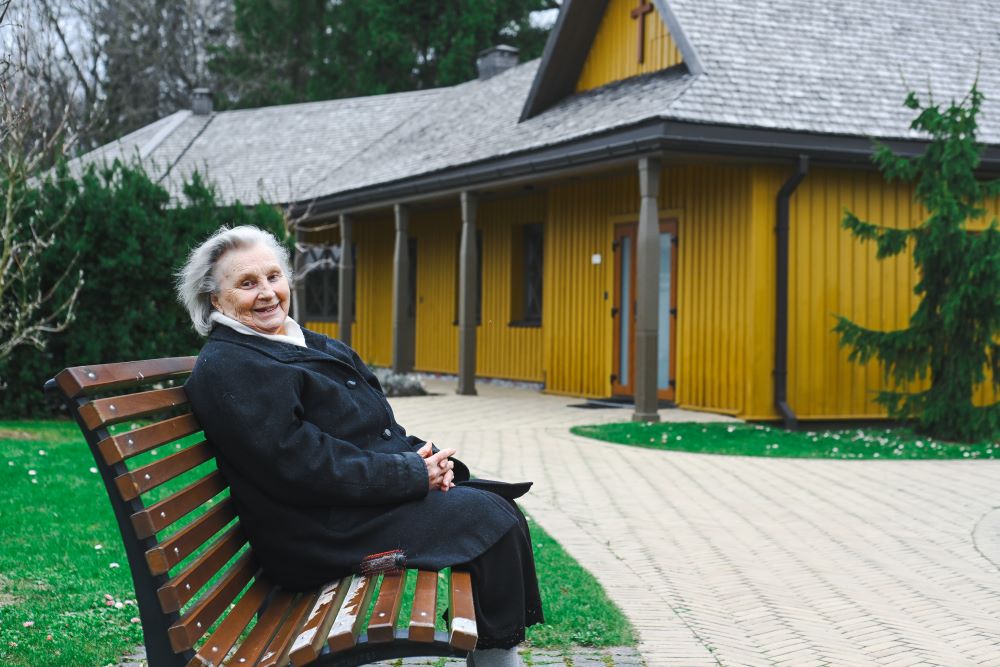
Sr. Nijole Sadunaite sits at the entrance to the Congregation of the Maids of the Most Holy Virgin Mary convent in the Lithuanian capital of Vilnius during an April 2023 interview. She died March 31 at age 85. (Artyom Keller)
As the ceremony proceeded, Sadunaite felt an immediate, deep conviction that she would join a convent. It was a surprise, as she had been very active in sports, loved tennis and had never thought of becoming a nun. As she sat, stunned and amazed at this inner revelation, her friend turned to her and said, "Nijole, what's a convent? I really feel like I'm supposed to go to a convent, but I don't know what that is." For Sadunaite, this was confirmation that the calling had come from the Holy Spirit. Two months later, she and her friend both joined a convent.
Doing so in the Soviet Union, though, meant that everything had to be done underground. That included working on the Chronicle of the Catholic Church in Lithuania, a samizdat (underground) journal that published accounts of religious persecution and other human rights abuses under Soviet rule. The Chronicle first appeared in 1972, and the priests and nuns who collected, typed up and circulated the information went to great lengths to avoid detection. They also worked to smuggle each issue to the West, where the Chronicle could be read on shortwave radio services like Voice of America, which reached Lithuania and thus would be heard by Lithuanians who never saw one of the few typed samizdat copies.
When a priest who had been arrested twice for his work on the Chronicle approached Sadunaite to recruit her, he gave her a solemn warning: If you do this work, the only reward you will get is prison. He was right. On Aug. 27, 1974, Sadunaite was typing copies of the Chronicle in her apartment when KGB agents stormed in and arrested her. She spent several months in a basement cell in the KGB prison in Vilnius before her trial and conviction, for the "crime" of typing Issue 11 of the Chronicle of the Catholic Church in Lithuania. She was sentenced to six years of imprisonment — three years in a Volga region gulag and three years in Siberian exile.
Sadunaite had waived the right to an attorney in her trial and instead stood up in her own defense in the Soviet court, as recorded in her court transcription in the Chronicle:
"I would like to tell you that I love all of you as my brothers and sisters and, if need be, without hesitation, would give my life for each of you," she told the court.
"But I must tell you the sad truth to your face. It is said that only he who loves has the right to criticize and scold. In addressing you, I make use of that right. Each time people are tried in connection with the Chronicle of the Catholic Church in Lithuania, the following words of Putinas, [a noted Lithuanian writer and poet] seem most appropriate:
'In arrogant tribunals
Murderers condemn the just.
You trample altars.
Both sin and righteousness
Collapse under the weight of your statutes.' "
Sadunaite challenged the court to consider the consequences of the Soviet "triumph" over its people: "Moral ruin, millions of unborn fetuses. Defiled moral values. Weak, debased people overcome by fear and a passion for life? All of that is the fruit of your labors. Jesus Christ was correct when he said 'You shall know them by the fruit of their labor.' Your crimes are propelling you towards the garbage heap of history at an ever-increasing rate of speed."
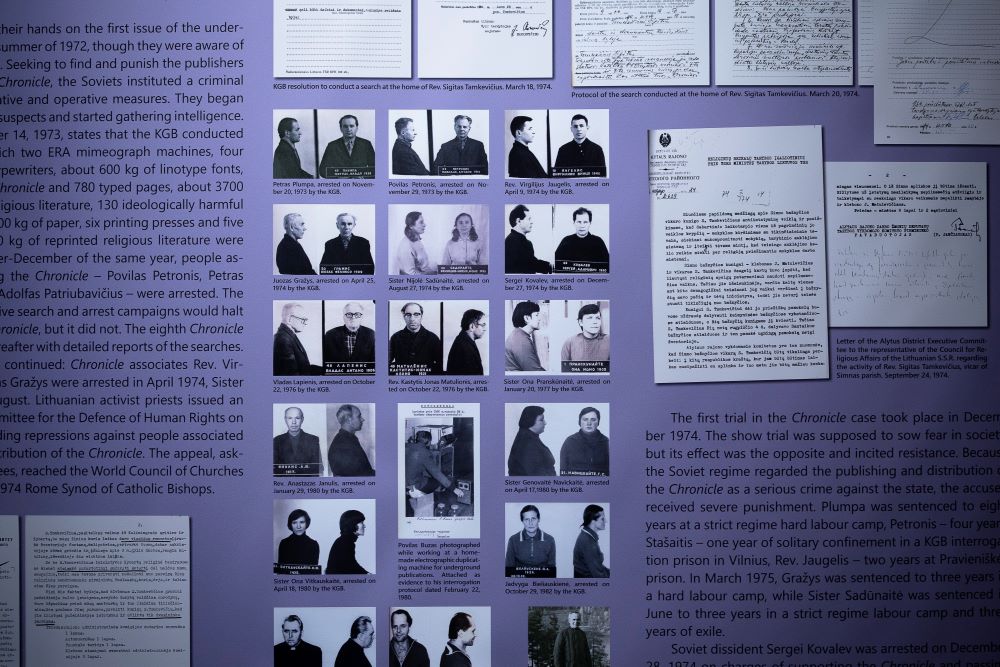
Sr. Nijole Sadunaite's 1974 arrest photos (second row from top, middle) are seen in a portion of an exhibit titled The Chronicle of the Catholic Church in Lithuania on July 19, 2022, at the Basilica of the National Shrine of the Immaculate Conception in Washington. The KGB jailed and exiled people who worked on the underground publication. (CNS/Tyler Orsburn) arrest pics
During her trial, Sadunaite had declared: "This is the happiest day of my life. I'm being tried for the Chronicle, which is a protest against the physical and spiritual tyranny to which my people are being subjected … [and] fighting for the rights of the people and the truth and … standing on the side of Jesus Christ." She refused to answer the questions put to her by the court, "since it is not I, but you, who are the criminals, violating the most elementary human rights guaranteed by the law, the Constitution, the Universal Declaration of Human Rights."
During her time in the KGB cell in Vilnius, Sadunaite had been interrogated and tortured in an attempt to make her give up names of others who worked on the Chronicle. She did not, she told me, and in fact, she describes those months as "the best of my life, because I have never felt God so caringly close."
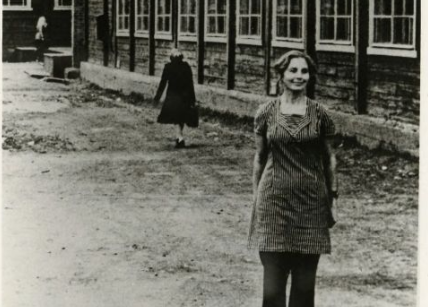
Sr. Nijole Sadunaite, seen in this 1977 photo, spent three years in exile, following three years in a Soviet work camp. The KGB arrested her on Aug. 27, 1974, for working on an underground Catholic publication. (Courtesy of Baylor University/Keston Center/Keston Digital Archive)
Before each interrogation session, she prayed the words of Jesus from Luke 12:12: "For the Holy Spirit will teach you at that time what you should say." Compelled by God's love for her persecutors, she would ask God to give her the right words to soften the interrogators' hearts. Here are the words she found in one session, when the KGB demanded she turn over names of the Chronicle's editors: "Of course I can tell you their names. It's you. You are the authors of the persecution and anti-religious propaganda that we write about. So you must stop."
Sadunaite described the feeling of God's closeness that she had when she was in prison, saying he appeared to her physically, an experience she says is almost impossible to describe. I asked how she could express love for her persecutors, as she does frequently, and she told me the guards and interrogators asked her the same question. She would tell them they were all children of God, and she loved them as such. And, she told them, if they had grown up in her home, with her parents, with faith, they would not have followed the path they took; it was she, Sadunaite, who was a "spiritual billionaire" in prison, while they were the ones who were poor. (Conversely, she said if she had their upbringing, she would have ended up like them. It's a notion shared by Pope Francis, who, Sadunaite explained, asks himself each time he visits a prison: "Why am I out here, and the prisoners are inside the gates?" He recognizes that if he grew up in the family of one of the prisoners, he would have ended up in prison as well.)
Sadunaite returned to Lithuania from exile in the early 1980s, but the KGB kept a watchful eye on her. There were more detentions, though not another trial and imprisonment. In August 1987, as a new Soviet leader, Mikhail Gorbachev, began to loosen the harsh restrictions on rights, Sadunaite and a few other dissidents organized the first public demonstration calling for an end to Soviet rule in Lithuania. KGB agents warned the organizers not to speak at the event, but Sadunaite ignored them, calling on the nervous crowd to pray for their KGB oppressors. The meeting was radical for its time, a direct challenge to Soviet authority, and yet Sadunaite's message was, as always, one of love and faith.
"If we have faith in God, we will feel God's love and receive guidance on how to leave this darkness of atheism and lies," she told the crowd, "because God is merciful, and we should pray for those in the KGB and militia who do not know what they are doing."
That relatively small demonstration marked the beginning of what quickly grew to a large and passionate independence movement in Lithuania that helped bring the collapse of the Soviet Union in 1991. Lithuania once again became independent, and Sadunaite and other church leaders had been key in galvanizing that movement. Their faith gave them the courage to speak out, in a time when most Lithuanians remained silent in the face of Soviet power.
Perhaps paradoxically, Soviet power and its punishment of Sadunaite had brought her closer to the core of her faith. "Prison is a very good place to achieve true repentance," she said. "Our small human suffering, very small, can bring us closer to the crucifixion of Jesus." And to the knowledge that "He is holding us in His hands."
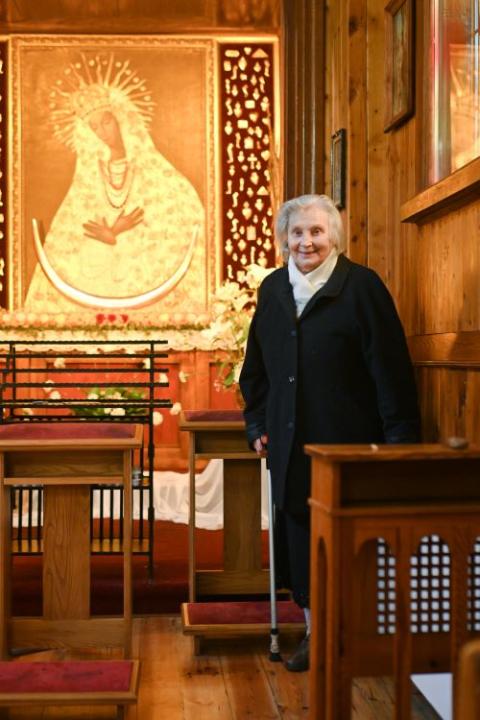
Sr. Nijole Sadunaite stands in her church in Vilnius, Lithuania, during an April 2023 interview. (Artyom Keller)
When she was first arrested, Sadunaite said, her interrogators told her they would torture and kill her. Without a flinch, she responded: "OK. It will only be an express train to God." As she shared these memories with me, she looked up and said: "Thank you, Lord." The buoyant humor behind quips like "express train to God" came through in a book she wrote in the 1980s, which was smuggled out to the West and published under the title A Radiance in the Gulag. "Its 'radiance' stems largely from Sadunaite's readiness to carry her cross so cheerfully, coupled with a remarkable ability to put her cares aside and reach out to beleaguered fellow believers along the way," wrote a reviewer in the Los Angeles Times.
There is a true Christianity and faith found among those who have faced persecution. In defiance of denominational, national, doctrinal, social and economic boundaries, they share radical personal encounters with Jesus, powerful experiences with the Holy Spirit, instances of clear personal calling and conviction by God — and profound, intimate experiences of being led by and ministered to by Jesus.
As we sat in her convent's small dining room, Sadunaite leaned over the table to me, with a light in her eyes, and said that obedience to Jesus is "the highest sacrifice and holiness." Living for Christ, she said, "is the most important thing in my life. I will stand for him, live for him, speak up for him and never back down. Regardless of the pressure that comes to push me away from this rock-solid position. I will not move from my wholehearted commitment to Jesus. His power strengthens me and helps me remain strong even in the face of opposition and conflict!"
Sadunaite mentored many younger sisters at the convent, who claimed she had the skin of an elephant. We would say, she had "thick skin" for all that she endured — harassment, torture and imprisonment. When COVID-19 spread among the nuns, she remained healthy, even while sharing mugs with others who fell ill. In her older years, she said, her contemplations focused on one thing: "being held in the arms of Jesus." It's a message she shared with the nuns in post-Soviet Lithuania, where Russia's war in nearby Ukraine is a source of anxiety and fear that their country might be next to be invaded.
We discussed how one reconciles the spiritual battle of faith, which is not against flesh and blood, with the earthly need for justice. Sadunaite said the role of the church in bringing justice is not just to pray for those who are being oppressed. It's necessary also to pray that the oppressors will have the courage to ask for forgiveness.
In recent times, many asked her how she was praying for Ukraine as it fights against the Russian forces under President Vladimir Putin. Her answer: "I pray for Putin, because he is also my brother."
Advertisement

